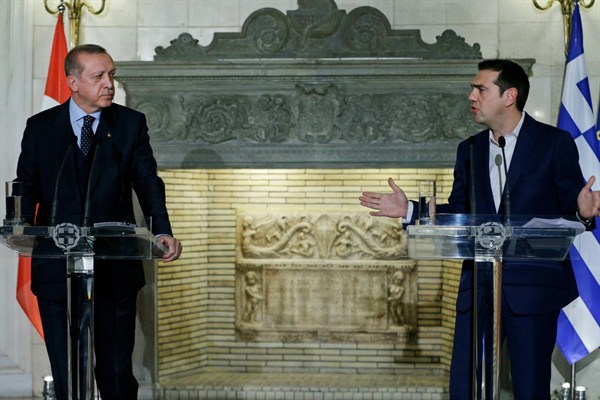On March 16, a Greek appeals court denied an extradition request by Turkey for eight Turkish soldiers who fled to Greece in July 2016, following the failed coup attempt against President Recep Tayyip Erdogan. It was the third such rejection by Greek courts, which say the men could face an unfair trial in Turkey. The fate of the servicemen, whom Turkey accuses of being involved in the attempted coup, has been a source of escalating tensions between Greece and Turkey, two NATO allies. In an email interview, Simon Waldman, a visiting research fellow in the Department of Middle Eastern Studies at King’s College London and author of “The New Turkey and Its Discontents,” discusses the rise in tensions, how Turkey’s relations with Greece have evolved under Erdogan and the implications for NATO.
WPR: What is driving the recent buildup in tensions between Turkey and Greece, and how significant of an issue is it given the long history of antipathy between the two countries?
Simon Waldman: The causes of the tensions are not necessarily new. Both Greece and Turkey want to assert their sovereignty over disputed islets located in the Aegean Sea, known to the Turks as Kardak and to the Greeks as Imia. The roots of the dispute can be traced back to the 1923 Treaty of Lausanne, in which Turkey agreed to its modern state boundaries following the dissolution of the Ottoman Empire after World War I. In the treaty, Turkey gave up the islets to Italy, which later handed them over to Greece in the Treaty of Paris in 1947, making ownership a contentious issue despite the fact that they are tiny and uninhabited. Greece and Turkey nearly went to war over the small islands in 1996, but a confrontation was averted by American involvement and the tireless efforts of Richard Holbrooke, the U.S. assistant secretary of state for European and Eurasian affairs at the time.

